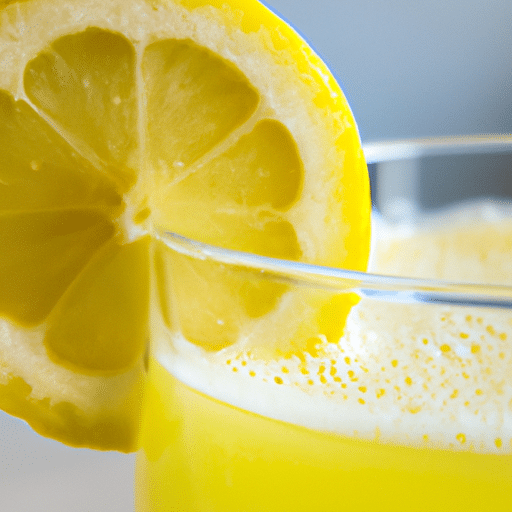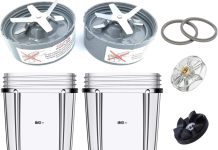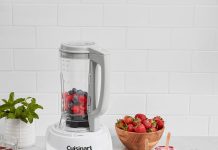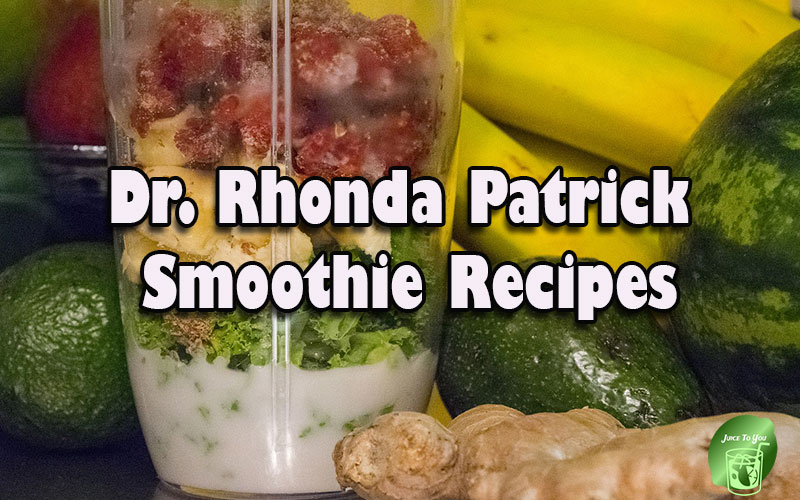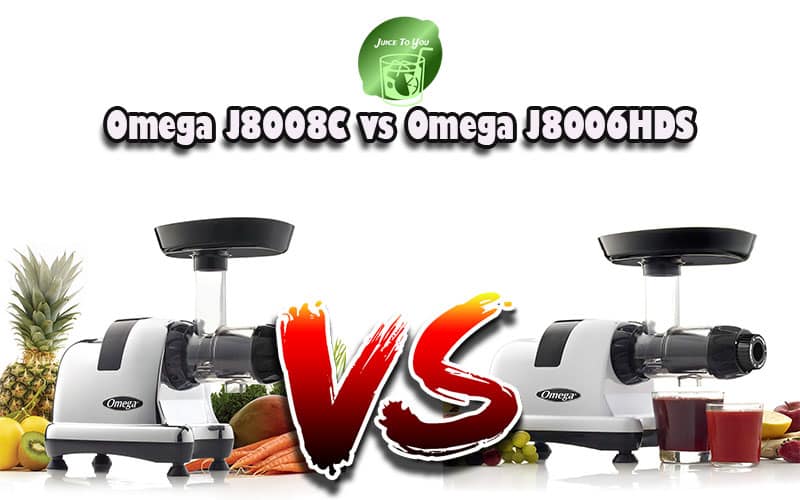Lately, juicing has become quite the popular trend, with numerous health enthusiasts raving about the benefits it brings. However, have you ever found yourself feeling a bit under the weather after indulging in a freshly pressed juice? We’ve all been there. In this article, we will explore the reasons behind that post-juicing discomfort and provide some insights on how to avoid feeling sick after juicing. So, if you’ve ever wondered why that green elixir made you feel queasy instead of invigorated, keep reading to find out the explanations behind this common sensation.
Review contents
Potential reasons for feeling sick after juicing
Juice quality and freshness
The quality and freshness of the juice you consume can greatly impact how it makes you feel. If the juice is not made from high-quality ingredients or if it has been sitting in the fridge for too long, it may not be as nutritious and may potentially lead to stomach discomfort or sickness.
Food allergies or sensitivities
One possible reason for feeling sick after juicing is having food allergies or sensitivities to certain ingredients. For example, if you are allergic to a specific fruit or vegetable used in the juice, consuming it can trigger an allergic reaction and make you feel unwell.
Intolerance to specific ingredients
In some cases, you may have a specific intolerance to certain ingredients present in the juice. This intolerance can cause digestive issues, bloating, or even nausea. Identifying these intolerances and avoiding the respective ingredients can help prevent feeling sick after juicing.
Detoxification effects
Juicing is often associated with detoxification, as it helps eliminate toxins from the body. While detoxification is generally a beneficial process, it can also cause temporary discomfort. This can include symptoms such as headaches, fatigue, or nausea as the body adjusts to the elimination of toxins.
Inadequate digestion and absorption
Improper digestion and absorption of nutrients from the juice can also lead to feeling sick. If your digestive system is not functioning optimally or if you have underlying digestive issues, your body may struggle to break down and absorb the nutrients from the juice, which can result in an upset stomach.
High sugar content in juices
Some juices, especially fruit-based ones, can have a high sugar content. Consuming excessive amounts of sugar, even from natural sources, can cause a spike in blood sugar levels and lead to feeling sick or experiencing symptoms like dizziness or fatigue.
Improper juicing techniques
Using improper juicing techniques can also contribute to feeling sick after consuming juice. Overheating the juice or exposing it to air for too long can cause oxidation and nutrient degradation, which may result in an upset stomach or loss of vital nutrients.
Underlying health conditions
Certain underlying health conditions can make individuals more prone to feeling sick after juicing. Conditions such as gastrointestinal disorders, irritable bowel syndrome (IBS), or acid reflux can be exacerbated by consuming large amounts of juice, leading to discomfort and feelings of sickness.
Overconsumption of juices
While juicing can be a healthy addition to your diet, overconsumption can have negative effects. Drinking excessive amounts of juice can overload your system with nutrients and potentially cause digestive distress or spike blood sugar levels, resulting in sickness.
Lack of balance in juicing diet
A lack of balance in your juicing diet can also contribute to feeling sick. It is important to include a variety of fruits, vegetables, and other ingredients in your juices to ensure you are receiving a balanced range of nutrients. Relying too heavily on one ingredient or neglecting essential nutrients can lead to digestive issues and feelings of sickness.
Tips to prevent feeling sick after juicing
Choose high-quality and fresh ingredients
To prevent feeling sick after juicing, make sure to choose high-quality and fresh ingredients. Opt for organic fruits and vegetables when possible and avoid using ingredients that appear bruised, moldy, or past their prime. Fresh and nutrient-rich produce will contribute to a healthier juice and reduce the chances of stomach discomfort.
Identify and manage food allergies or sensitivities
If you suspect that food allergies or sensitivities may be causing your sickness after juicing, it is essential to identify and manage them. Consult with a healthcare professional or allergist to determine which specific ingredients you may be allergic or sensitive to. Once identified, avoid those ingredients in your juicing recipes to prevent adverse reactions.
Avoid ingredients that may cause intolerance
Similarly, if you have identified specific ingredients that cause intolerance or digestive issues, it is advisable to avoid them in your juicing. These may include ingredients like wheatgrass, certain fruits, or cruciferous vegetables. Experiment with alternative ingredients that are better tolerated by your digestive system to help prevent feeling sick.
Gradually introduce new ingredients into your diet
When trying out new ingredients in your juicing recipes, especially if you have a sensitive stomach, it is wise to introduce them gradually. Start with small amounts and observe how your body reacts. If you experience any adverse effects, discontinue using that ingredient or consult a healthcare professional for guidance.
Ensure proper digestion and absorption
To improve digestion and absorption of the nutrients in your juice, it is important to maintain good digestive health. Avoid consuming large meals or heavy foods immediately before or after juicing, as this can interfere with the absorption process. Additionally, consider incorporating foods or supplements that support digestion, such as probiotics or digestive enzymes.
Monitor and limit sugar intake
To prevent spikes in blood sugar levels and associated sickness, it is crucial to monitor and limit your sugar intake from juices. Focus on vegetable-based juices or include ingredients with lower sugar content. You can also add fiber-rich ingredients to help slow down the absorption of sugar and promote better blood sugar control.
Use correct juicing techniques
Using proper juicing techniques can greatly influence the quality and nutritional value of your juices. Ensure that you are using the appropriate juicing equipment and follow the manufacturer’s instructions. Avoid excessive heat or prolonged exposure to air, which could compromise the freshness and nutrient levels of the juice.
Consult a healthcare professional
If you consistently feel sick after juicing or if your symptoms worsen over time, it is essential to consult a healthcare professional. They can assess your overall health, evaluate any underlying conditions, and provide personalized guidance to prevent any adverse effects from juicing.
Practice moderation in juice consumption
While juicing can be a beneficial addition to a healthy diet, it is important to practice moderation. Instead of relying solely on juices, incorporate them as part of a balanced eating plan that includes whole foods. Aim for variety in your diet and ensure that juices complement, rather than replace, a diverse range of nutrients from other sources.
Maintain a balanced juicing diet
To avoid feeling sick after juicing, maintain a balanced and varied juicing diet. Incorporate a wide range of fruits, vegetables, leafy greens, and other nutritious ingredients into your juices. This will ensure that you receive a diverse array of vitamins, minerals, and antioxidants while minimizing the risk of digestive discomfort or sickness.
By following these tips, you can prevent the unpleasant experience of feeling sick after juicing and enjoy the many health benefits that juicing has to offer. Remember to listen to your body, make adjustments accordingly, and consult with healthcare professionals when necessary to ensure optimal health and wellbeing. Here’s to happy and healthy juicing!

